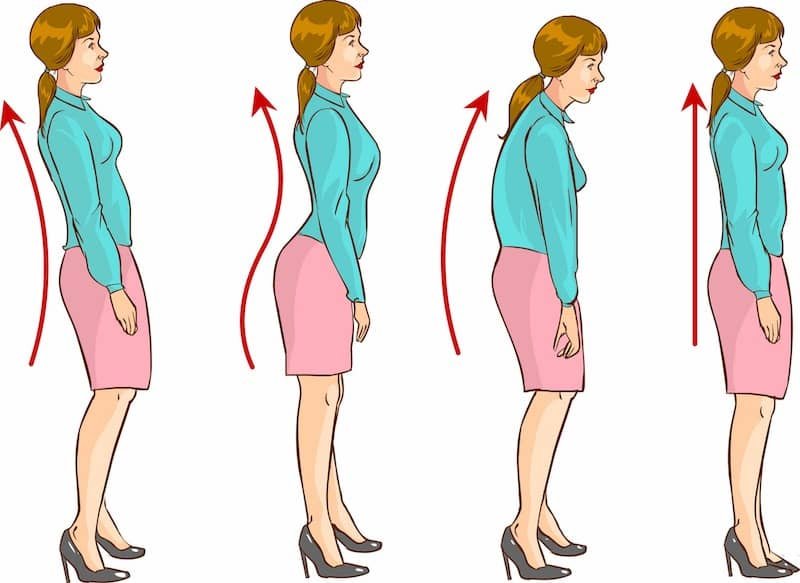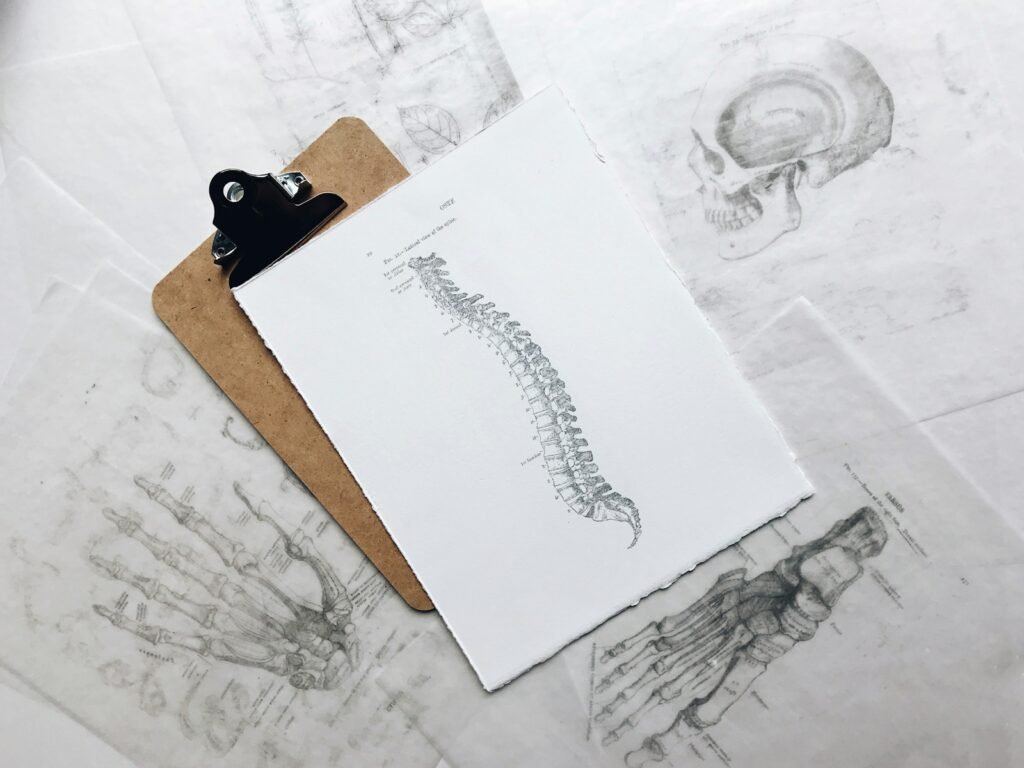The perfect standing posture involves aligning your body to reduce strain and promote balance and health. Good standing posture ensures that your joints and spine align, reducing the risk of strain or injury and promoting more efficient muscle use.
Here are the key elements of ideal standing posture:
- Feet: They should be about hip-width apart, flat on the ground.
- Knees: Slightly bent to avoid locking, which helps distribute your body weight evenly.
- Hips: Should be even and aligned with your shoulders.
- Spine: Maintain its natural S-shaped curve without exaggerating any part of it.
- Shoulders: Relaxed and pulled back slightly, not rounded or hunched forward.
- Head: Position your ears so they align with your shoulders and your chin is parallel to the floor, not jutting forward or tucked in.
- Eyes: Looking straight ahead, your gaze naturally falling on the horizon.
- Arms: Hanging naturally at the sides of the body.







